Apply now to join our next cohort of Community Science Fellows and Community Leads!
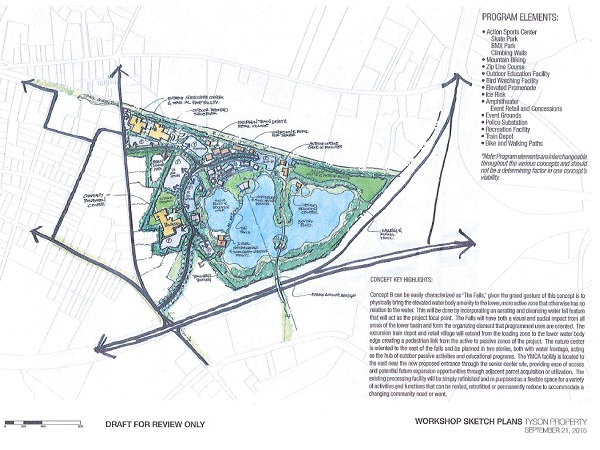
To provide technical support to the City of Berlin on what remediation would be necessary to convert land originally used as a poultry plant to a recreational area.
The Town was interested in partnering with Thriving Earth Exchange to undertake microbiological risk assessment of the ponds at the site. Allen was reliant upon the scientists to come up with a testing method that would best determine the pond biology. Because they were both volunteers, the idea was that their objectivity would not be tarnished and the town could not be accused of taking any particular line of action. The Town also contracted with EA Engineering, Science and Technology, Inc. PBC (EA) for a geotechnical review of the ponds and a remediation cost estimate.
Silbergeld used resources from microbiological assessment from Johns Hopkins’ lab. She received ancillary support from Salisbury – microbiological assessment, DNA analysis. There they ordered a kit that has a number of assays – used only 4 of them. She considered it good practice for her students. Tools and kits and her time – all of that fell under her lab development. Her own time and resources dedicated to it. She was familiar with the assays and techniques, so it wasn’t a stretch to do DNA isolation.
The scientists were able to collect sediment core samples for DNA extraction of DNA with the support of the town’s consultants, EA.
From the town’s end they had a number of resources from the wastewater facility and lab. Additionally, they partnered with Silbergeld to do some of the testing. Silbergeld also partnered with EA on extraction and nature of extraction/sediment samples. Ultimately, these facilities worked more with Nyland. The facilities coordinated on geotechnical analysis to get what Nyland needed.
As per the initially planned deliverable, the team produced a microbiological analysis of sediment sampling of one area within one pond of this facility. The results of the Thriving Earth Exchange study show that there are no microbiological hazards. For the Town, it means they don’t need to take immediate steps to remediate the ponds or even remediate it at all. EA indicated it would cost approximately $7m to remediate the three ponds.
In addition to the sediment sampling, the team also had the idea of holding a community meeting. However, with the delays in scheduling and development of other reports it eventually didn’t make much sense. Allen tried to coordinate a presentation to the Town Council, Mayor and Public and Parks commission in an order that made sense. Originally, the idea was to have a stand-alone community meeting with EA and Silbergeld. By early spring and summer of 2017, when other reports related to the property (building renovation and interpretive plan) came through, it became less attractive to have a separate community meeting focused on the ponds.
The Town of Berlin will use the microbiological analysis of sediment sampling of one area of one pond of the facility to demonstrate that there is no microbiological hazard in the ponds. If the council and public decide they want to remediate ponds, EA determined there is a tremendous amount of sediment in middle pond which will make it difficult to use it for kayaking or water sports. The town will need to remediate the middle pond. However, the results of this report provide justification for not needing to immediately investment in the ponds. Therefore, between EA’s and the Thriving Earth Exchange project report, there’s no issue unless the middle pond is going to be used for water sports.
The Town Administrator and the community at large have a better understanding of the type of risks the ponds pose. Thus, the community should feel more comfortable about using the ponds. Considering the volunteer time spent, and work done through Thriving Earth Exchange, the report helps the town to provide justification for not spending the recommended $7-8m to remediate the ponds. Even if the town decides to take the EA information and remediate the first pond (estimated to be $2.3m), there isn’t an immediate health and safety reason remediate the pond. Thriving Earth Exchange bought them time to plan and figure out how to pay for remediation without having to treat it as a crisis situation.
From this project, others may learn better ways to partner with Thriving Earth Exchange for their own purposes. For instance, getting the team as committed to a scope early on and together – be it via phone or in-person regularly – early on. If a project decides to replace a scientist, ensure that it is done with the consent of the community leader and early on to ensure that all have sufficient buy in. As a scientist, if you are planning to hand off a critical piece of the project to someone else, ensure that you first have a discussion with the community leader you’re collaborating with first.
Communication is critical during all stages of the project. From the experience of the Town Administrator, it is very easy to work with Thriving Earth Exchange but community leaders need to be very clear about their expectations and what the community needs are. In the case of Berlin, if the Town Administrator had known about Thriving Earth Exchange’s existence prior to hiring the consultants, she would have preferred to have the Thriving Earth Exchange scientists do their work before getting consultants.
The team noted that the following contributed to the success of the project:
However, there were several key things that the team would do differently if they had the chance to do this project again:
To other teams currently pursuing Thriving Earth Exchange projects and for those that anticipate doing a Thriving Earth Exchange project, the team recommends:
Along with this final report from the Thriving Earth Exchange team, three other reports went to Berlin Town Council on 28 August 2017. The Thriving Earth Exchange report was well received. Parks Commission meeting on 5 Sept. Focus will mainly be on what can they do with ponds, do they have to spend money? Building is expensive, what will they do. Don’t think it will cause them to do anything substantially different.
The Town of Berlin will assess whether to move forward with making the ponds a recreation area given the evidence received through the Thriving Earth Exchange and other reports. Should remediation be necessary, the Town now has some concrete ways forward.
The Town of Berlin, MD has purchased approximately 60 acres of private property located at 9943 Old Ocean City Boulevard. The property was previously owned by Tyson Chicken, Inc. and contains a chicken processing plant which has not been in use for over 10 years. The Town intends to redevelop the land with recreational uses in mind.
Berlin completed a Phase 1 and Phase 2 environmental study on the property as part of its due diligence, posted on the town’s website. E.coli was found in the ponds, with the possibility of other contaminants. Therefore, the Town is interested in remediating the ponds and designing them in a way that minimizes the presence of E.coli. The expectation is that this remediation and design would reduce health risk and maintenance costs.
The Town of Berlin is a community of 4,500 people located on Maryland’s eastern shore. The Town operates under a Strong Mayor form of government. Berlin provides the following services to the community’s residents: police, public works, parks, water, wastewater, stormwater, electricity, economic development, planning, code enforcement, engineering (under contract), and general administration.
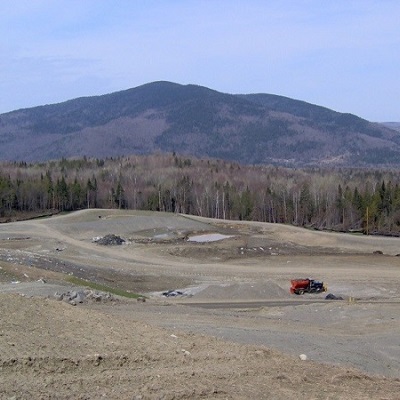
In their May 2017 of PM Magazine, TEX partner, the International City and County Management Association (ICMA), highlighted stories from three ICMA communities collaborating with TEX scientists. Bob Hart, formerly of Kennedale, TX (now with Corinth, TX), Laura Allen (Berlin, MD), and Becky Merrow (Colebrook, NH) describe how their scientific partners are helping their towns address critical community priorities. Click here to read the full article.
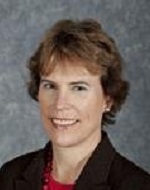
Laura Allen is the Town Administrator for Berlin, Maryland which was recently voted America’s Coolest Small Town. She has a Bachelor of Arts degree and a Masters in Public Administration along with over 18 years of experience working in the public sector. Ms. Allen is a graduate of the International City/County Management Association’s Leadership Program (LICMA) and the Senior Executive Institute (SEI) at the University of Virginia, Darden Graduate School of Business.
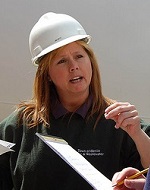
Jane Kreiter serves as Berlin’s Water Resources and Public Works Director. She has over 24 years of experience in her field and holds a B.S. in Biophysical Environmental Studies from Northland College. She feels that, her position and the responsibilities of her department represent the ultimate in environmental stewardship.
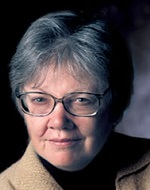
Dr. Ellen Silbergeld is a professor of environmental health science at the Johns Hopkins Bloomberg School of Public Health. Her research centers around environmental issues related to the poultry industry in Delmarva.

Thriving Earth Exchange works with the International City/County Management Association (ICMA) to identify areas where Earth and space science expertise can support ICMA member cities from around the world.
Berlin, MD Tyson Plant Technical Report -Ellen Silbergeld and Jennifer Nyland, 08.11.2017 Download
“Park Cleanup Price Tag Prohibitive” -Josh Davis, Bayside Gazette 08.31.2017 Download
03.23.17_Bayside_Gazette_Issue Download
“How one small city is using science to change its world” -Laura Allen, 13 December 2016, oral presentation at the meeting of the American Geophysical Union, San Francisco, CA Download
(c) 2024 Thriving Earth Exchange